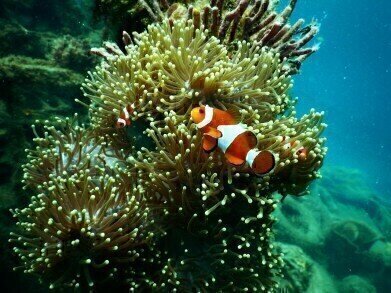Environmental Laboratory
Can Coral Reefs Survive Global Warming?
Feb 03 2015
For the first time, scientists in Australia have established which sections of coral reef, including the Great Barrier Reef, will be able to survive a mass bleaching event. It’s predicted that these events will become more frequent in future due to global warming. But unlike previous studies predicting that coral reef will die out in the long term (see this news story for example: Coral reefs 'could dissolve within 100 years'), this new research led by Nicholas Graham at the James Cook University in Australia will be vital for conservationists who will be able to focus their efforts on protecting particular sections of reef and boost its short-term survival.
What is a mass bleaching event?
When coral reef is exposed to certain unsuitable conditions, it can expel the algae in its tissues and turn totally white in colour - this is called a ‘mass bleaching event’. Coral bleaching is a stress response, and although it doesn’t necessarily result in coral mortality, the risk is higher while in this state.
The causes of mass coral bleaching include increased water temperature and, occasionally, decreased water temperature. Localised bleaching events, in contrast, can be caused by a number of other factors, including oxygen starvation, bacterial infections, herbicides and increased solar irradiance.
The coral reefs most at risk from a mass bleaching event are located in warmer, shallow waters. Those in lower light and increased cloud cover conditions, with a higher water flow and increased availability of nutrients are more protected, at least from severe events.
What does this mean for the future of coral reefs?
The study’s co-writer, Dr Aaron McNeil from Australian Institute of Marine Science, speaking with the Guardian, said, “This gives reef management a major boost in the face of the threats posed by climate change and, encouragingly, suggests people can take tangible steps to improve the outlook for reefs.”
“By carefully managing reefs with conditions that are more likely to recover from climate-induced bleaching, we give them the best possible chance of surviving over the long term, while reduction of local pressures that damage corals and diminish water quality will help to increase the proportion of reefs that can bounce back.”
Graham said that the study’s findings would buy more time to focus on protecting those areas of reefs that are more resilient to climate change while underlying problems, such as global warming, are dealt with. The information, he explained, prompted them to question local activities such as dredging at Abbot Point, which will cause large amounts of sediment to be deposited near the Great Barrier Reef; and allowed them to advise organisations locally and further afield on areas of reefs to limit damage from boats anchors and fishing gear.
Corals as a Natural Archive
For the last three years, Dr. Intan Suci Nurhati had gone on expeditions in search of large corals. Why corals? Studying the coral skeletal geochemistry allows her to map the changes in the environment. For more information on this exciting topics, read: Corals as a Natural Archive of Environmental and Climate Changes.
Digital Edition
IET 34.2 March 2024
March 2024
Gas Detection - Biogas batch fermentation system for laboratory use with automatic gas analysis in real time Water/Wastewater - Upcycling sensors for sustainable nature management - Prist...
View all digital editions
Events
Apr 17 2024 Guadalajara, Nexico
Apr 18 2024 Shanghai, China
Apr 22 2024 Hannover, Germany
Apr 22 2024 Marrakech, Morroco
Apr 23 2024 Kuala Lumpur, Malaysia


















